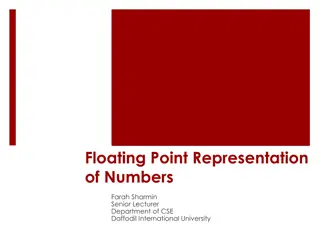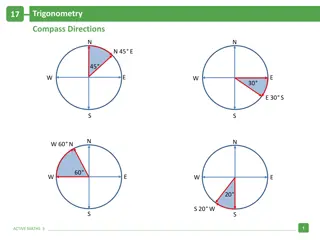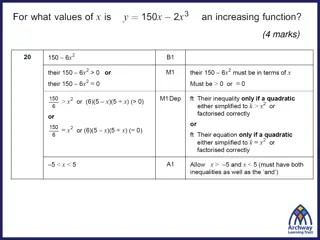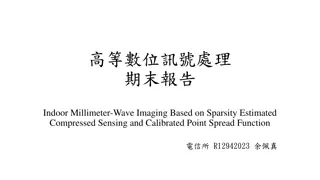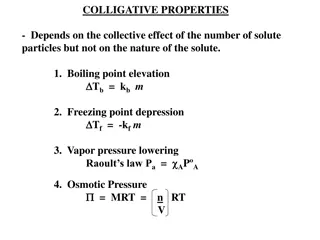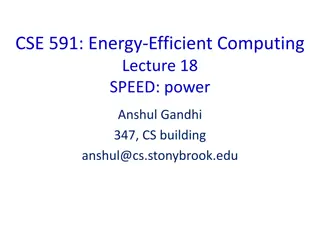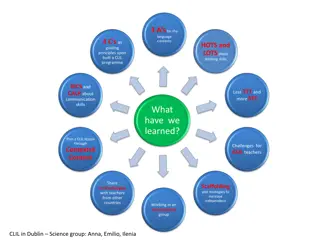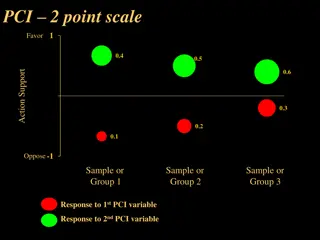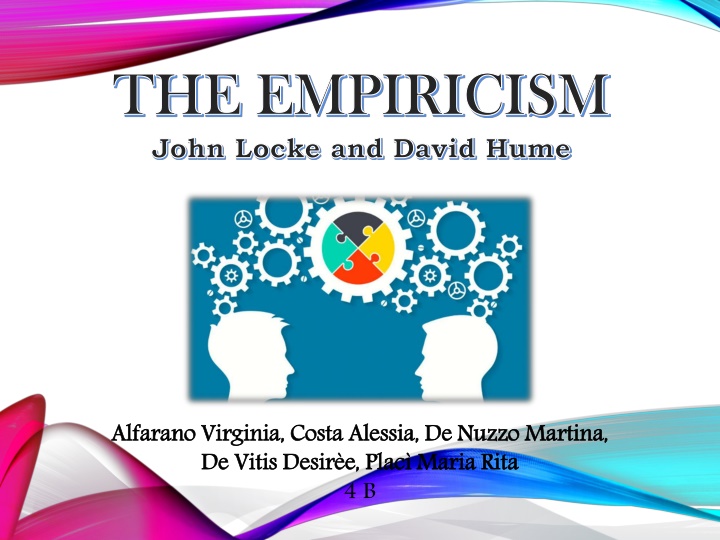
Empiricism: John Locke and David Hume's Influence
Explore the key tenets of empiricism, a philosophical movement from the 17th century, led by notable figures like John Locke and David Hume. Learn about their perspectives on knowledge, experience, and innate ideas, and how empiricism differs from rationalism. Delve into Locke's rejection of innate knowledge, the formation of ideas through experience, and the classification of ideas into simple and complex categories. Discover Locke's views on intuitive and demonstrative knowledge, as well as the perception of agreement between ideas and reality.
Download Presentation

Please find below an Image/Link to download the presentation.
The content on the website is provided AS IS for your information and personal use only. It may not be sold, licensed, or shared on other websites without obtaining consent from the author. If you encounter any issues during the download, it is possible that the publisher has removed the file from their server.
You are allowed to download the files provided on this website for personal or commercial use, subject to the condition that they are used lawfully. All files are the property of their respective owners.
The content on the website is provided AS IS for your information and personal use only. It may not be sold, licensed, or shared on other websites without obtaining consent from the author.
E N D
Presentation Transcript
THE EMPIRICISM THE EMPIRICISM John Locke and David Hume Alfarano Alfarano Virginia, Costa Alessia, De Nuzzo Martina, De 4 B Virginia, Costa Alessia, De Nuzzo Martina, De Vitis Vitis Desir e Desir e, , Plac Plac Maria Rita Maria Rita
WHAT IS THE EMPIRICISM? WHAT IS THE EMPIRICISM? Empiricism of the seventeenth century in England, that claims that human knowledge experience that something was known irrespective of experience. Empiricism developed in opposition to rationalism, a philosophical movement whose main exponent was Cartesio. According to the rationalists, philosophy should be conducted through an a priori deductive reasoning. Conversely, the empiricists argue that the basis of the scientific method is the idea that our theories should rely on the observation of the world rather than on intuition or faith. The most important exponents of this current were John Locke and David Hume. Empiricism is a philosophical movement, born in the second half knowledge comes exclusively from the senses experience, while denying that humans had innate senses or from innate ideas ideas and
JOHN JOHN LOCKE LOCKE innate knowledge Locke rejected the theory of innate sensation and reflection as the foundations from which our ideas originate. If ideas come from experience external (that is, natural), or internal (therefore related to the human spirit and our intrinsic speculation). Ideas will then be divided into ideas experience, and ideas The ideas, derived from experience, are the simple elements that reason can use to form complex ideas and reasonings. At the time of reception the spirit is passive, but when our intelligence begins to build relationships of ideas, it becomes active. In this case two types of ideas are generated: complex things. Complex ideas can be divided into three categories: - the - the body substance is "the unknown substrate of the sensitive qualities", and the spiritual substance is "the substrate that is unknown to the operations of the spirit ; - relationships knowledge and pointed to experience, it is also true that it can be ideas of of sensations ideas of of reflection sensations, derived from external reflection, drawn from the inner one. complex and and general general ideas ideas. General ideas do not indicate a reality but are signs of the ways the substances ways, that is, those ideas that can not be considered self-contained; substances, that is, the complex ideas existing in themselves and of which the relationships, that is, the relationships that intellect recognizes among ideas.
JOHN JOHN LOCKE (1) LOCKE (1) Knowledge or disagreement among the various ideas. It can be: - intuitive fulfilled; - demonstrative among ideas come to light through intermediate tests, based on the senses, which, besides intuition and logical reasoning, make us discover the existence of externalities to us. Compliance between ideas and reality is divided by Locke into three orders: - the - God - things sensation and the recognition that there is something other than the ego. If the object can not rely on the witness of the senses, its existence is no longer certain, but Knowledge is understood as a perception of agreement intuitive, when this relationship is immediate and self- demonstrative, when agreement and disagreement the ego God, who is known through a rational demonstration; things and ego, which is known through intuition; and the the world world, which are known through the but only only probable probable.
DAVID HUME DAVID HUME Hume began by arguing for the validity of empiricism, the premise that all of our knowledge is based on our experiences, and by using this method to examine several philosophical concepts. First, he demonstrated that complex ideas are formed out of simpler ideas, which were formulated on the basis of impressions we received through our senses. Therefore, ideas different fact" or arrived at instinctually. ideas are are not not fundamentally "matters of of fundamentally different from fact" as matters that must be experienced, not reasoned out from experiences experiences. Then, Hume defined "matters Based on these two claims, Hume attacked metaphysical systems used to prove the existence of God, the soul, divine creation, and other such ideas. Since we have no experience of any of these things and we can not receive a direct impression of them, we have no real reason to believe that they are true. Despite his apparent hostility to abstract ideas of a metaphysical nature, Hume did not deem all abstract ideas worthless. Hume argued that the mind naturally forms associations sensations and reflections both fall under the term impressions, while he reserves the term ideas for the results of mental processes such as imagination and memory. associations among among ideas ideas from impressions that are similar in space and time. For Hume,






